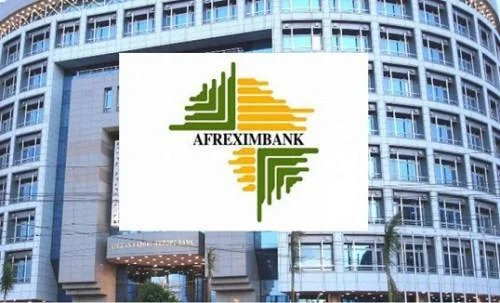Ghana is locked in a dispute with the African Export-Import Bank (Afreximbank) over a $768.4 million loan, a critical issue in the country’s ongoing debt restructuring efforts following its 2022 default.
Afreximbank claims “preferred creditor status,” arguing its loans should be exempt from losses, similar to those of the IMF and World Bank.
However, Ghana’s Finance Ministry, led by Minister Cassiel Ato Forson, insists the debt must be restructured like other commercial loans, creating a standoff with potential implications for Ghana, Malawi, and Zambia.
Afreximbank Stance and Ghana’s Push for Talks
Afreximbank, a Cairo-based lender with a $42 billion balance sheet, has stated that Ghana and Malawi, both undergoing debt restructuring, are current on their loan repayments, suggesting no arrears.
The bank maintains that its founding treaty, ratified by member states including Ghana, grants it immunity from restructuring, akin to multilateral institutions.
This position was reiterated by Afreximbank’s Managing Director Chandi Mwenebungu during a May 2025 investor call.
On the other hand,Ghana’s Finance Ministry sent a letter on May 21, 2025, requesting Afreximbank to engage in debt treatment discussions to align with the IMF debt sustainability parameters and the G20’s Comparability of Treatment principle.
Ghana emphasized that it remains in arrears with all eligible external creditors and has not granted preferential treatment.
Ghana’s Debt Restructuring Context
Ghana defaulted on its external debts in December 2022, triggering its worst economic crisis in decades, worsened by the COVID-19 pandemic, global interest rate hikes, and Russia’s invasion of Ukraine.
The country successfully restructured $13 billion in international bonds and official creditor debts in 2024, earning a credit rating upgrade to CCC+ by S&P in May 2025.
However, restructuring its remaining commercial debt, including the $768.4 million owed to Afreximbank (nearly a quarter of its $4 billion commercial loans), is essential to fully exit default.
A clause in Ghana’s 2024 bond issuance prohibits favoring commercial creditors over bondholders, adding pressure to treat Afreximbank debt comparably.
The Paris Club, a group of official lenders, has also urged Ghana and Zambia to include Afreximbank and the Eastern and Southern African Trade and Development Bank (TDB) in restructuring talks, further complicating negotiations.
Regional Implications and Malawi’s Parallel Struggle
The dispute extends beyond Ghana. Malawi and Zambia, also restructuring under the G20’s Common Framework, face similar challenges with Afreximbank and TDB.
Malawi, with Afreximbank and TDB accounting for about 9% of its external debt, has halted normal payments, relying on a $190 million collateral account that was depleted by May 2024.
However, Zambia owing Afreximbank over $45 million and TDB $543 million, has confirmed it will restructure these debts, aligning with Ghana’s stance.
These tensions could set a precedent for how African multilateral lenders are treated in future restructurings.
Chris Humphrey of ODI Global noted that Ghana, Malawi, and Zambia are “caught in the middle” between creditors, facing difficult choices as Afreximbank high-interest loans, “9.55% for Ghana in 2022” contrast with its claim to preferred status.
Afreximbank Role and Risks
Afreximbank, founded by African governments and private investors, is a vital lender of last resort for countries like Ghana when bond markets are inaccessible.
Its $27.8 billion loan book had a non-performing loan ratio of 2.44% in Q1 2025, but restructuring its loans could impact its BBB (Fitch) and Baa1 (Moody’s) credit ratings, raising borrowing costs.
But investors, like Lutz Röhmeyer of Capitulum Asset Management, highlight Afreximbank importance but warn that excluding it from restructuring could force Ghana to cut critical government spending.
Looking Ahead
The Ghana-Afreximbank dispute underscores the complexities of sovereign debt restructuring, particularly with regional lenders claiming preferential status.
Ghana’s Finance Ministry advocates for dialogue to avoid legal conflicts, as a prolonged standoff could delay its economic recovery and influence debt talks in Zambia, Malawi, and beyond.























